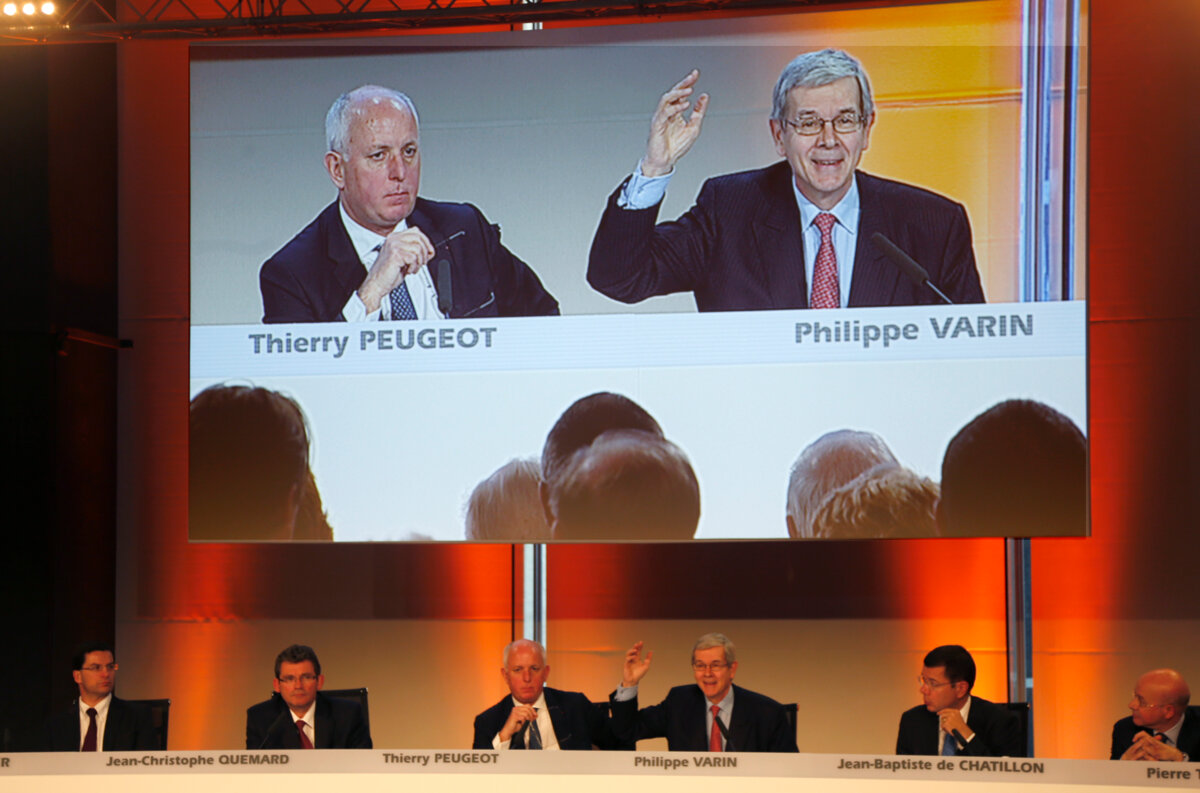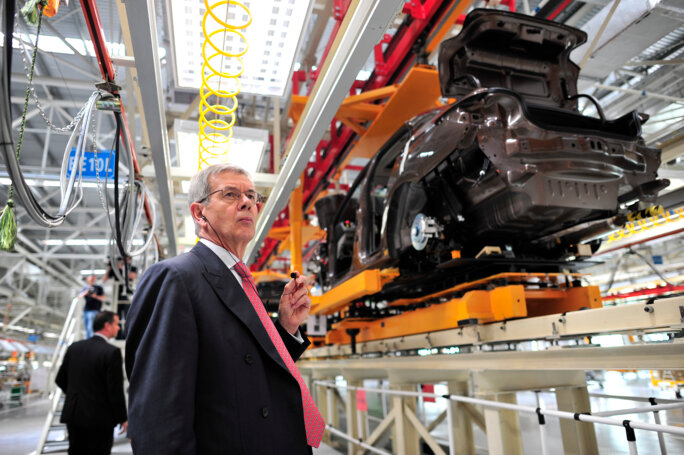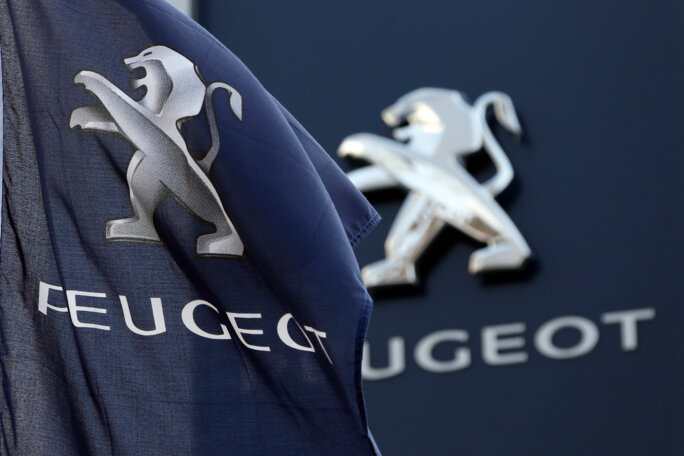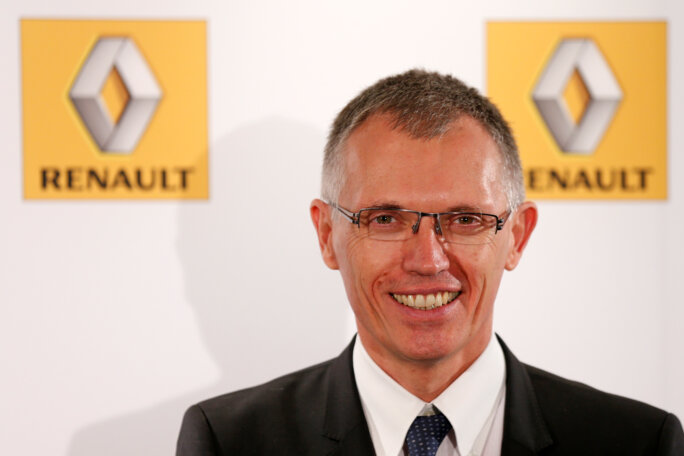Right to the bitter end, Thierry Peugeot, chairman of the board at the French car manufacturer that bears his name, wanted the family to keep control of the company. Right to the end, opposed by the government, directors and even his own cousins, he wanted to stay in charge. But in the end, he lost. Earlier this week the board at PSA Peugeot Citroën formally approved the end of the Peugeot's family control over the company, and accepted an injection of 3 billion euro in cash from its new investors.
From now on it is these new investors, and not the Peugeot family, who will drive forward this famous French company. The Chinese car maker Dongfeng Motor Corporation and the French state are each sinking 800 million euros into the firm, giving them a 14% stake each and joint control. Despite the efforts of Thierry Peugeot the family will see its stake in the company fall from 25.4% to just 14% and also lose the double-voting shares that gave it a controlling 38.1% voice.
The final insult for Thierry Peugeot is that under the terms of the new deal he is no longer the chairman of the group's supervisory board, a position he had hoped to keep. His replacement is likely to be businessman Louis Gallois, an independent director at the group and a trusted establishment figure who has already worked closely with the government.

Enlargement : Illustration 1

This episode represents a turning point in the industrial history of France. The Peugeot family has been a part of the French industrial landscape for 200 years, long before cars were invented. In many ways the story resembles that of the Wendel family who, in 1978, abandoned the iron and steel industry that it had been involved in since 1704. In that case, too, it was the French state that stepped in, with a partial nationalisation of its furnaces in the Lorraine region of north-east France. The Wendel family, which was less divided than the Peugeot family, decided to draw a line under its involvement in heavy industry, instead choosing to nurture its fortune in other sectors, such as in finance under the guidance of cousins Pierre Celier and Ernest-Antoine Seillière. This abrupt change of direction appealed to one part of the Peugeot family, led by Thierry's cousin Robert. For him the Wendel story was the blueprint to follow in order to save the family fortune.
Many observers think that this latest outcome in the Peugeot family story was inevitable, given its rifts and dissensions. The Peugeot file has been in the government's in-tray since it came to power in May 2012. The company, which manufactures and sells almost exclusively in Europe, is one of the car makers that has suffered the most from the slump in the European auto-mobile market. In the six years since the financial crisis began the volume of car sales in Europe has fallen back to 1995 levels. Peugeot, meanwhile, has recorded double-digit drops in sales.
The company has already launched a massive programme of cost-cutting. The factory at Aulnay near Paris has been earmarked for closure since July 2010 but the announcement was postponed until after the 2012 presidential election to avoid it getting tangled up in politics. A plan to shed 8,000 staff, nearly ten percent of the workforce, is currently under way. But despite all that PSA Peugeot Citroën is still in deep trouble. The deficits are mounting. In 2012 the company ate into more than 3 billion euros of its own reserves and is threatened with financial asphyxiation.
The point of no return was reached in October 2012. At that time the French state was forced to underwrite an emergency guarantee of seven billion euros for PSA Finance, the group's financial arm that insures car loans and a part of the distribution network. This guarantee lasts until 2016. But the finance ministry had already decided that the state could no longer afford to ignore the Peugeot problem. It had become, as treasury ministers put it, a “systemic risk”.
This analysis was shared by the prime minister Jean-Marc Ayrault and the minister for industrial recover Arnaud Montebourg, albeit for different reasons. The automobile industry is still the largest sector in France's industrial landscape. More than 245,000 employees work in it directly, including around 80,000 at Peugeot alone. This made it impossible to abandon the beleaguered group. Behind the direct jobs there is also a whole network of sub-contractors and suppliers who depend on the car firm. The chief executive officer of rival French firm Renault, Carlos Ghosn, has himself acknowledged the potential knock-on effect of Peugeot's difficulties on his own group.
When faced with the closure of the steelworks at Florange in north-east France, Montebourg lost the internal government battle, having vainly argued for some form of government intervention. This time, confronted with Peugeot's difficulties, Montebourg successfully persuaded his colleagues of the need for action, with the government willing to step in as a minority shareholder to prevent the group's closure or from being subject to a predatory bid.
Since then everyone has been seeking a way out of the ailing car maker's bleak situation. Banks and industry experts have for a long time pointed out the group's key problems: it is too small and too European in a sector which is now globalised. So while PSA Peugeot Citroën sells 2.8 million cars a year, Renault-Nissan sells more than 8 million and Volkswagen more than 9 million. In an industry with low margins, volume makes all the difference.
“Fifteen years ago Volkswagen and PSA were at the same level of production,” says an expert familiar with the industry. “Since then the automobile market has changed profoundly. [The manufacturers] have not all chosen the same approach. Volkswagen chose lots of different brands and pushed for internationalisation, BMW went for the upmarket approach, Renault formed an alliance with Nissan and chose the low-cost route, while Fiat chose to take control of the American firm Chrysler. Peugeot chose nothing at all. It stood still while everyone else moved on.”
A former senior executive at PSA makes a similar assessment. “Since the death [in 2002] of [editor's note, Thierry Peugeot's father] Pierre Peugeot the group has not moved forward. Thierry has an old-fashioned view of the group. His chief concern was to maintain family control, to show himself worthy of the family tradition. In a certain sense he thought that the family was indestructible. He did not see or did not want to see the changes. Because on top of everything he also had a family problem to deal with,” adds the former executive.
Indeed, everyone who is familiar with the group and its family mysteries traces the group's paralysis back to the death of Pierre Peugeot in 2002 and of the family compromise that followed. The dominant figure in the group, Pierre Peugeot died without having had the time to organise his succession. Because no obvious successor emerged, the three branches of the family who controlled the firm through a complex series of holding companies decided to divide up power on the basis of their capital stake in the company. Thierry, who represented the biggest slice of shares, became chairman of the supervisory board. His cousin Robert was put in charge of FFP, the family holding company in charge of diversifying the Peugeot fortune, though at the same time he became a member of the firm's executive board before becoming a member of the supervisory board. A third cousin, Jean-Philippe, was named as vice-chairman of the supervisory board.
Hidden hierarchy

Enlargement : Illustration 2

While there were frequent disagreements between the cousins, they all operated as a bloc as soon as one essential point was at stake: family power was not to be shared or negotiated away. More than eight family members were placed in positions of responsibility in the group. This ultimately created a parallel, hidden hierarchy at PSA.
All the chief executive officers were worn down by this structure. In ten years the car maker got through no fewer than three of them: Jean-Martin Folz, Christian Streiff and most recently Philippe Varin. Significantly, all came from outside the group. “They were industrialists who knew the world of industry well but not the car industry,” says one close observer. Indeed, many believe the PSA group was incapable of finding a boss from within its own ranks. “No leader could emerge,” explains a former executive. “Inside the group there was only one power and that's the Peugeots. In a sense it would have meant challenging them on their own turf.” All three CEOs eventually left, exhausted by the experience.
There is certainly no doubt that Thierry Peugeot had a view on everything, got involved in everything and held up everything. When, in the 2000s, the group was still prospering he preferred it to pay dividends to its shareholders rather than invest. In addition, between 2002 and 2007 the car firm paid out 3 million euros of its own money to buy its own shares. This allowed the family, whose shareholding power had fallen, to increase its share of the capital to 25% of the group – without having to spend a single centime.
On other matters the family carried on as sedately as before, with no desire to change or rush things. The group, which had developed heavily in the saloon car market, took an inordinate amount of time to grasp that this sector was losing momentum. It would take Peugeot ten years to launch its own 4 x 4; and it did so at almost precisely the moment when the fashion for them had passed. The firm reacted with the same slowness over automatic gearboxes, the revival of previous models and the renewal of old brands – for example the Citroën DS - as BMW had done with the Mini Cooper or Fiat with the Fiat 500. “It's a shame. PSA's problems have come just as the group has made some real efforts,” says the boss of one of France's top companies. “In terms of quality, design and reliability both Peugeot's and Citroën's models are real successes. They pretty much stand comparison with German makes.”
But PSA still lacks a new engine. For more than 20 years the group has continued to gamble on the development of diesel engines. This gamble was undertaken to exploit a tax break for diesel fuel in France that came in at the start of the 1980s, and was overseen by Peugeot's former boss Jacques Calvet – himself a former tax inspector. But now the use of diesel engines is coming increasingly under fire, because of the link between diesel exhaust fumes and health and the environment. PSA has no alternative, however, having neither a hybrid engine nor an electric one.
Peugeot's tendency to wait and do nothing has been even more apparent when it comes to forging strategic alliances. Over the course of 20 years Peugeot has considered going into partnership with just about everyone: Fiat, Toyota, BMW, Mitsubishi, GM and Ford, for example. Ultimately all the talks have come to nothing or at most resulted in limited technical cooperation, for example over commercial vans with Fiat at the Sevelnord factory at Valenciennes in northern France and with BMW over making petrol engines for small cars. The first joint venture will not be renewed when it expires in 2017, while the BMW joint venture looks set to be abandoned when it comes to an end in 2016. “BMW had acquired the knowledge to make small engines. They had no further need of PSA,” says an expert.
“The alliance that would have made the most sense was the one with Mitsubishi,” says one former executive. “The two groups complemented each other perfectly. But there were problems with stock market parity. It would have meant the family allowing its holdings to be diluted. Thierry Peugeot did not want that.”
When the CEO Philippe Varin suggested an alliance with General Motors in 2011 the Peugeot family greeted the idea with similar coolness. They did not see anything to gain by getting close to an American manufacturer that was still in recovery mode after its bankruptcy crisis in 2009. In the end GM took a 7% share in PSA in February 2012. But the alliance did not produce tangible benefits. “On paper the links made a lot of sense,” says a senior banker. “In reality it became clear that it was a lot more difficult that had been foreseen. American cars are very different from Japanese or European models. Apart from Opel [editor's note, the German subsidiary of GM] there's not a lot of common ground. But the German government didn't want Opel to get close to PSA. Also, the men who had brokered the deal were no longer calling the shots. The GM boss Dan Akerson had left. His successors no longer saw the interest in an alliance with PSA. [At PSA] Philippe Varin was already being strongly undermined by Thierry Peugeot.”
As the group's financial pressures mounted, so to did the internal tensions. First of all, inside the family itself, Robert Peugeot was increasingly questioning the direction that was being pursued, and thought it was time for the family to up sticks from the industry so that its fortune could prosper elsewhere. But Thierry Peugeot wanted to maintain family control of the group at all costs. In order to shore up the firm's ailing finances he considered looking for help from sovereign funds, approaching Qatar, Kuwait and others. But meanwhile relations between Thierry Peugeot and Philippe Varin had deteriorated. So while the family member was seeking new shareholders to help the company, its CEO was himself knocking on the door of the Chinese car manufacturer Dongfeng.
Citroën may have been the first manufacturer to try its luck on the Chinese market, at the beginning of the 1990s, but it had never really profited from it. Because of a lack of follow through and commercial investment, the car maker found itself being overtaken by Volkswagen, Mercedes, BMW and GM over the course of the years. Then in 2006 PSA started a co-business with Dongfeng in China. And in 2010 the French group decided to step up its involvement in the Chinese market.
Dongfeng itself was very happy to develop this alliance. PSA brought it a great deal in terms of technology and know-how. And when Philippe Varin suggested deepening the relationship by establishing financial ties with PSA, the Chinese group was in complete agreement. So with GM on one side and Dongfeng on the other, Peugeot should have been adequately equipped to ride out the financial storm. All the more so given that the French state, on the alert after having to rescue PSA Finance, was also ready to help capitalise the firm. However GM, which has its own Chinese agenda, was not happy with the approach. It broke its ties with Peugeot, with the announcement being made official in December 2013.
Thierry Peugeot's revenge

Enlargement : Illustration 3

Nonetheless, talks between PSA, Dongfeng and the French state continued. Refusing to allow the Peugeot family carte blanche in any deal, the head of the French agency in charge of state shareholding, David Azéma, went to China last autumn to negotiate directly with Dongfeng – without informing the family shareholders. He got what he was looking for: assurances over complete equality between the French state and the Chinese firm in terms of capital, voting rights and number of members on the board when the moment came to inject cash into the firm. Each side agreed not to change the deal for ten years, while at the same time accepting they would each defend their own interests.
But if the French state could be satisfied with the negotiations, which allowed it to consolidate the future of the company in France, there was real drama within PSA itself. A double drama. First of all, Thierry Peugeot could not bear the idea that the family would no longer control the group. For he was well aware that the family had neither the means nor the desire to put the required capital into the group itself, a sum estimated at around 3 billion euros at least. To see the state take over from the family would be the clearest possible sign of his failure.
Moreover, Thierry Peugeot believed that Philippe Varin had betrayed him. He held the group's CEO fully responsible for the lack of manners shown to him by David Azéma. For Thierry Peugeot the fact that the French state's representative had gone to China and met Dongfeng to discuss PSA's future without informing him was completely unacceptable. From that moment the breakdown in relations between Thierry Peugeot and Philippe Varin was complete.
The affair came to a head during the PSA board meeting at the end of November 2013. This meeting, which should have been focussed on the cost-cutting plans and the future tie-up with Dongfeng, instead descended into the settling of scores. At the last minute Thierry Peugeot added to the agenda the removal of Varin, who had just had his contract renewed, and proposed his replacement by Carlos Tavares.
Tavares had been number two at Renault-Nissan when he declared publicly in July 2013 that he wanted to be in charge of a large car manufacturing company of his own. This went down badly with the current number one at Renault-Nissan, Carlos Ghosn, who is very sensitive when it comes to questions of authority and power. He asked his number two to resign on the spot. “It was Thierry Peugeot, and him alone, who sought out Carlos Tavares,” says a banker who is close to the issue. And once more the PSA board followed the wishes of the head of the Peugeot family in approving the change of CEO.

Enlargement : Illustration 4

There was a final act of vengeance from Thierry Peugeot. The chairman of the group's supervisory board has lots of connections among employees and unions, and he discreetly leaked the scale of the pension deal that PSA had agreed for Varin when he was hired. The revelation that Varin would be walking away with an annual net pension of 310,000 euros at a time when the group was laying off workers and needed baling out by the state had the anticipated effect; there was a huge public row.
Members of the French association of private enterprises (AFEP) put pressure on Philippe Varin to give up his pension, in a bid the damp down the row and to avoid “measures that are prejudicial for everyone”. Varin quickly announced that he would forego all his pension entitlements, other than his statutory rights. In private Thierry Peugeot was delighted that the group would not have to pay a centime more to its former CEO. That mood was not entirely shared by all the workforce. “The unions later realised the extent to which they'd been used. Some are not very proud of it,” says one employee.
However, Thierry Peugeot's own satisfaction was short-lived. For there was a clash at the heart of the family. Thierry Peugeot did not want to be the man who had allowed the family to lose control of the company and did everything within his means to try and stop this from happening. Improbably, given that PSA's capitalisation on the stock market was no higher than 4.5 billion euros, he insisted that the company could raise the 3 billion euros in capital it needed on the market, without the need for Dongfeng or the French state. The family itself would underwrite a part of it. But his cousin Robert, supported by the other cousin Jean-Philippe, maintained that it was time for the family to move on to pastures new.
The conflict came to a resolution during another dramatic board meeting, held on January 17th this year. Faced with the opposition of so-called independent directors such as Louis Gallois and Patricia Barbizet, Thierry Peugeot was left in a minority. The way was clear for Dongfeng and the French state to take a stake in PSA.
The board meeting on February 18th confirmed the Franco-Chinese solution, which was officially announced the following day against a backdrop of yet more catastrophic results from the group. The capital is due to be raised over the coming weeks. Meanwhile PSA Finance is to be supported by the Spanish bank Santander, which should reduce the French state's risks.
However, PSA has not yet seen the end of the family's machinations. Inspired by the example of the Wendel family – who withdrew some very valuable assets before the end of the steel-making business – Robert Peugeot wants to take away from the group one or two quality companies. In particular he has his eyes on the automotive parts manufacturer Faurecia. An analysis by the investment bank JP Morgan last week recommended that the parts maker should indeed be separated from the group. By chance, JP Morgan is the bank that advises the PSA supervisory board, in other words the family.
Meanwhile, anxious to make a quick exit, Philippe Varin has resigned from all his functions as CEO to leave the way open for Carlos Tavares, who is said to be impatient to get started. Many observers harbour doubts and concerns about the arrival of this man who certainly knows the car industry very well but who was trained in the Carlos Ghosn school of management, with its brutality and oversized egos. These observers wonder whether parachuting him into a group which has a strong culture of discretion, and which has been traumatised by restructuring, redundancies and fear of collapse, is a good idea. In short, they wonder whether Tavares will fit in and become the saviour that many people hope for.
----------------------------------------------
English version by Michael Streeter


